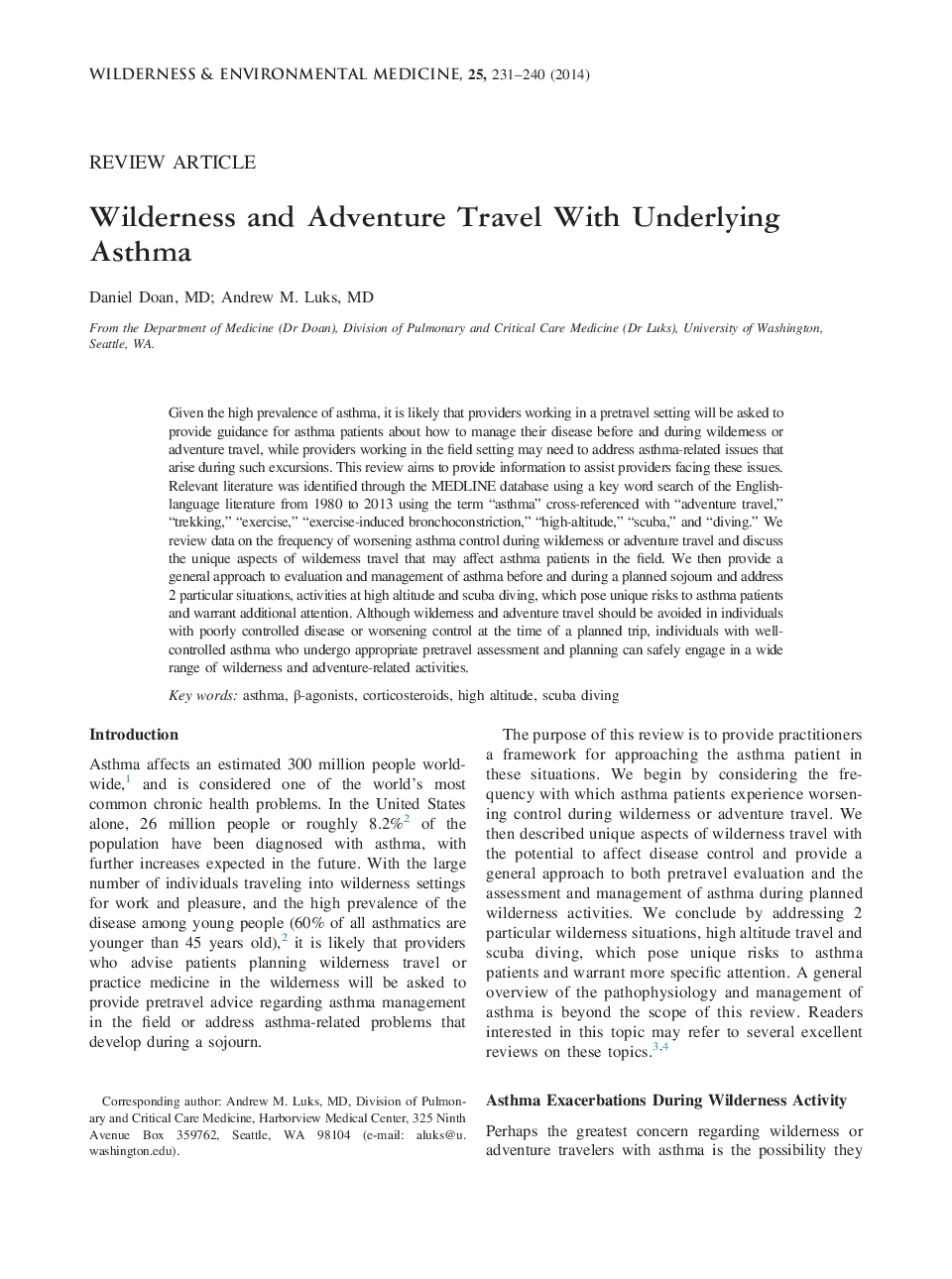| Article ID | Journal | Published Year | Pages | File Type |
|---|---|---|---|---|
| 2614118 | Wilderness & Environmental Medicine | 2014 | 10 Pages |
Given the high prevalence of asthma, it is likely that providers working in a pretravel setting will be asked to provide guidance for asthma patients about how to manage their disease before and during wilderness or adventure travel, while providers working in the field setting may need to address asthma-related issues that arise during such excursions. This review aims to provide information to assist providers facing these issues. Relevant literature was identified through the MEDLINE database using a key word search of the English-language literature from 1980 to 2013 using the term “asthma” cross-referenced with “adventure travel,” “trekking,” “exercise,” “exercise-induced bronchoconstriction,” “high-altitude,” “scuba,” and “diving.” We review data on the frequency of worsening asthma control during wilderness or adventure travel and discuss the unique aspects of wilderness travel that may affect asthma patients in the field. We then provide a general approach to evaluation and management of asthma before and during a planned sojourn and address 2 particular situations, activities at high altitude and scuba diving, which pose unique risks to asthma patients and warrant additional attention. Although wilderness and adventure travel should be avoided in individuals with poorly controlled disease or worsening control at the time of a planned trip, individuals with well-controlled asthma who undergo appropriate pretravel assessment and planning can safely engage in a wide range of wilderness and adventure-related activities.
